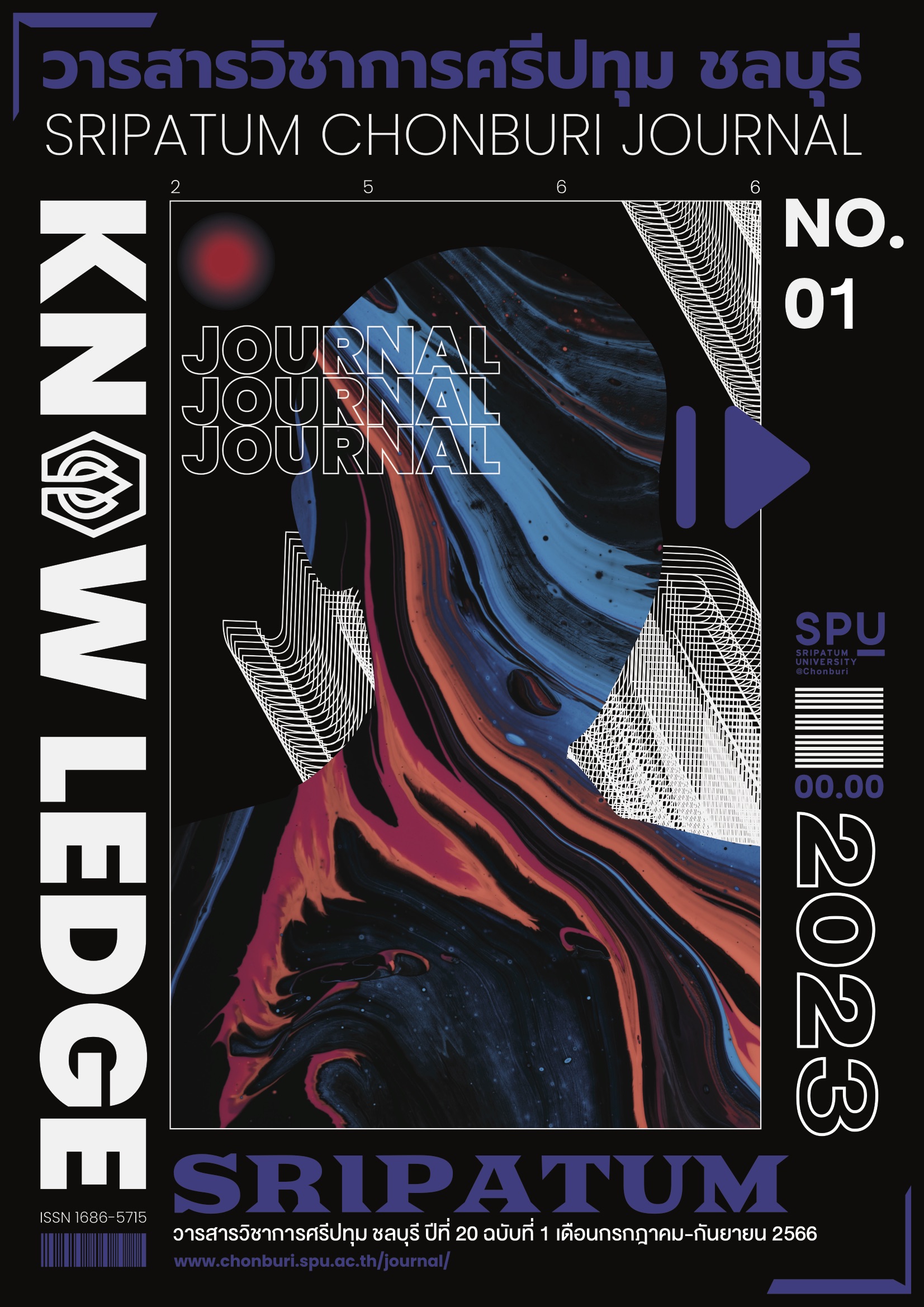THE EXPECTED ROLE OF HUMAN RESOURCE MANAGEMENT: MIXED METHOD RESEARCH
Keywords:
Human Resource Role, Human Resource Management, Mixed Method ResearchAbstract
This mixed research, which used a sequential approach, aimed to study the expected human resource role. In this quantitative study, data were collected from 400 human resource practitioners by convenience sampling and analyzed by frequency, percentage, mean and standard deviation. The results showed that all components of the expected human resource role were at the highest level, ranging from highest to lowest as follows: the administrative expert component, employee champion component, strategic partner component, and change agent component. The qualitative study was a focus group discussion of 20 human resource practitioners selected by purposive sampling, and data were analyzed by content analysis. The results showed that the expected human resource roles were 1) business ethics and human resource ethics, 2) business and operation knowledge, 3) human resource management and labor law knowledge, 4) the ability to advise executives, and 5) coordination among employers, employees, and government agencies. The results of both studies were consistent, except for business ethics and human resource ethics were additional findings obtained from qualitative studies.
References
กัลยา วาณิชย์บัญชา. (2549). สถิติสำหรับงานวิจัย (พิมพ์ครั้งที่ 2). กรุงเทพฯ: สำนักพิมพ์จุฬาลงกรณ์มหาวิทยาลัย
ปัญญา ธีระวิทยเลิศ. (2559). เทคนิคการสนทนากลุ่ม (Focus Group) ที่มีประสิทธิภาพ. วารสารสถาบันวิจัยญาณสังวร, 7(2), หน้า 284-289.
ภิราช รัตนันต์. (2560). การจัดการทรัพยากรมนุษย์ร่วมสมัยในองค์กร. วารสารบริหารธุรกิจและการบัญชี มหาวิทยาลัยขอนแก่น, 1(1), หน้า 21-38.
สถาพร วิชัยรัมภ์. (2565). จริยธรรมในการบริหารทรัพยากรมนุษย์. วารสารวิชาการมหาวิทยาลัยราชภัฏบุรีรัมย์, 14(1), หน้า 1-16.
สุภาพร ทรงกิจทรัพย์. (2550). หลักจริยธรรมกับการบริหารทรัพยากรมนุษย์. วารสารศรีปทุมปริทัศน์, 7(2), หน้า 114-121.
Creswell, J.W. (2003). Research Design: Qualitative, Quantitative, and Mixed Method Approaches. New York: Sage.
Han, J., Chou, P., Chao, M., & Wright, P. M. (2006). The HR competencies-HR effectiveness link: A study in Taiwanese high-tech
companies. Human Resource Management: Published in Cooperation with the School of Business Administration, The University
of Michigan and in alliance with the Society of Human Resources Management, 45(3), pp. 391-406.
Mondy R.W. (2012). Human Resource Management. New Jersey, NJ: Pearson Prantice Hall.
Mondy, R.W., & Joseph, J.M. (2016). Human Resource Management. New Jersey, NJ: Pearson Prantice Hall.
Noe, R., Hollenbeck, J., Gerhart, B., & Wright, P. (2023). Human Resource Management: Gaining a Competitive Advantage. New York:
McGraw Hill.
Quinn, R.W., & Brockbank, W. (2006). The development of strategic human resource professionals at bae systems. Human Resource
Management, 45(3), pp. 477-494.
Ulrich, D. (1997). Human Resource Champion. Boston: Harvard Business School Press.
Downloads
Published
Issue
Section
License
Copyright (c) 2023 Sripatum Chonburi Academic Journal (Online)

This work is licensed under a Creative Commons Attribution-NonCommercial-NoDerivatives 4.0 International License.
บทความทุกบทความเป็นลิขสิทธิ์ของวารสารวิชาการศรีปทุม ชลบุรี



